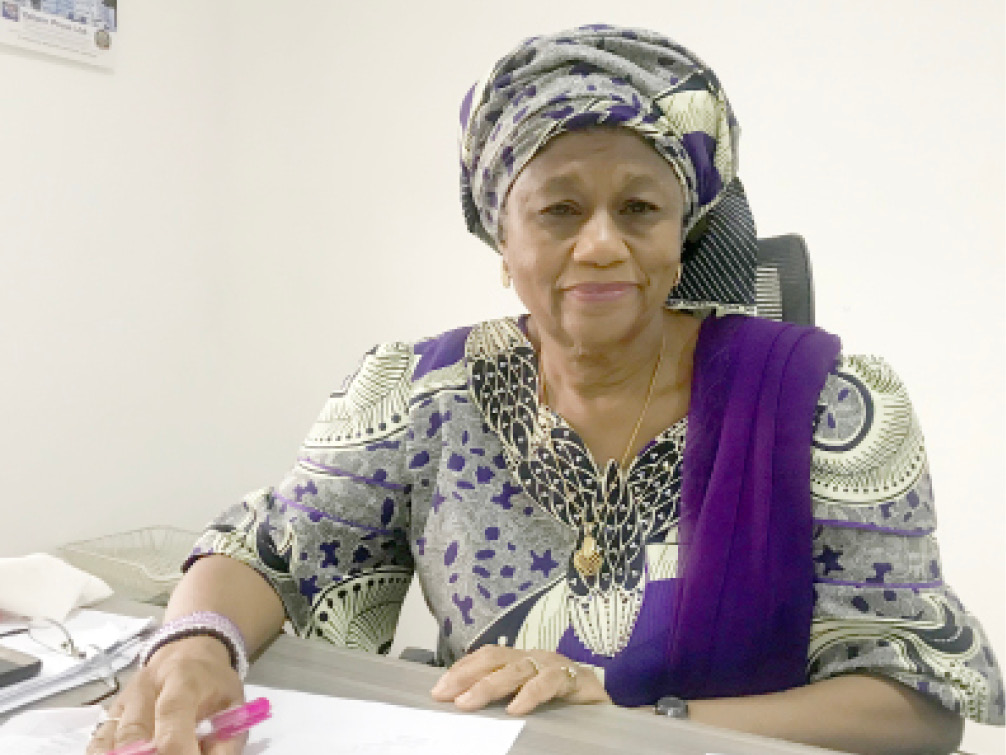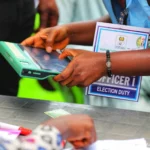History was made in 2018 when Kaduna State conducted Nigeria’s first and Africa’s second electronic voting elections, placing Nigeria among the league of countries that have used electronic voting system. Being the first to champion the use of such technology in Nigeria, Governor Nasir El-Rufai of Kaduna State says he is poised to make another breakthrough by perfecting electronic voting come September 4th, 2021 when residents will go to the polls to elect their local government chairmen and councillors.
In 2018, Kaduna State Government substituted the Kaduna State Independent Electoral Commission Law No. 10 of 2012 and other Matters Ancillary with the Kaduna State Independent Electoral Commission Law, 2018 to pave way for electronic voting in the state. This single legislation has placed Nigeria among a league of few countries where e-voting is still practiced.
- Family members of murdered ISIS fighters repatriated to Abuja
- PODCAST: IDP Camps: A Ticking Time Bomb
Daily Trust reports that section 16 (3) of the state law provides that the State Independent Electoral Commission shall have power to determine the method by which voters may be verified and accredited for the purpose of casting their votes. It states that “such verification and voting shall be through the use of approved electronic device, smart card reader and electronic voting machine.”
And so, Electronic Voting Machines popularly known as EVMs were used to champion this cause in 2018 albeit challenges and allegations of multiple voting. This time however, the state electoral body says it has perfected the machine to eliminate that particular challenge.
Speaking with Daily Trust, the Chairman Kaduna State Independent Electoral Commission (KADSIECOM), Dr. Saratu Binta Dikko-Audu, said the software has been upgraded to increase the credibility of the election process, adding that there will be no room for multiple voting.
“The major improvement we have done is that once you have voted once, the machine will capture the card, it can view the card, it won’t see the chip in the card but it will deny that card access to vote a second time, so this time around, we have cancelled multiple voting so whoever thinks he can take the machine and continue to vote over and over again, they won’t have that access,” she said.
Dr. Audu however said accreditation will still be done manually like it was done in 2018 using the voter register. She said, “our assistant presiding officer will check the voter register and check your voter card then mark you on the voter register and mark your thumb with an indelible ink so that if you approach another polling unit or the machine again, once that finger is marked, you won’t be allowed access to a voting machine.”

How the Electronic Voting Machine works
Ahead of the September 4th elections, the state electoral body says it intends to train about 18,000 adhoc staff comprising of presiding officers, assistant presiding officer, clacks, supervisory presiding officers, ward returning officers and local government returning officers for the smooth operation of the EVM and overall conduct of the election.
Daily Trust reports that in 2018, when the machine was first deployed, residents had voted after a presiding officer uses his authorization card to authorize access to the machine. However, with an upgraded software, Dr. Saratu Binta Dikko-Audu said the presiding officer will still authorize voters but each voter will vote using their own Persona Voters Card (PVCs) to open the platform then proceed to select the logos of the parties of their candidates of choice.
The EVM is a computerized box-like machine with a “Cancel and Ok” button that comes with an attaching ballot box. According to the SIECOM Chairman, it is easy to use even for people living in the villages, uneducated and older people. “It’s simpler than the ordinary analog phone that uses buttons. You don’t have to punch any button, all you need to do is to select the logo of the candidate you want to vote for, then press OK. That’s all, it’s very simple,” she said.
Giving a run-through of how the machine operates, Dr. Audu said the presiding officer will first set up the machine for voting which will be done in front of party agents, security agents and others who are present at the start of voting.
She said the machine first opens the page for the chairmanship election and the voter can select the logo of the party of his/her candidate by just a tap. “Then the screen will enlarge that logo and if that is the party of your candidate, then there are two buttons; ok and cancel, if you tap the ok button which is the green, as soon as you do that, your vote is captured.”
She said on the left side of the screen, a transparent screen will show the tally for which the logo of the party selected is being generated adding that the slip is cut and it drops into the ballot box which is at the bottom of the EVM, thus ending the voting process for the chairmanship. Our correspondent gathered that soon after the chairmanship vote is captured, the screen of the machine automatically goes to that of the Counsellorship page and the same process is repeated.
“If, however you make a mistake in selecting the logo of your candidate’s party, you can cancel. If you press the cancel button, your vote has not been recorded yet, your vote is only recorded when you press the ok button,” she said, adding that: “If you press the cancel button, it takes you back to the home page and then you can make proper selection and you will see the tally slip being generated before it drops into the ballot box.”
However, if for any reason an electorate feels the need to participate in only one category of the election, the chairman said all that is needed to be done was to press the cancel button twice. “It will ask you “are you sure you don’t want to vote,” then you press ok and you cancel the second time and that’s it, the machine shuts down and you can put your PVC as many times as you like, it will not open again until the presiding officer comes and another voter approaches the voting machine.”
Daily Trust reports that each EVM is powered by a battery that can last up to 16 hours but should there be any reason for the battery to fail, the KADSIECOM chairman, “we have generators deployed to every ward in the entire state so all you need to do is to call the presiding officer and he will get a generator within minutes and the election will continue.”
How results will be transmitted
Issue of transmission of election results, the main contention that has been in the front burner of Nigeria’s amended electoral act could still pose a challenge in Kaduna, especially around areas with poor network coverage. However, the state’s electoral body says that issue has tackled as the negotiations have been made with service providers to boost networks on election day.
The chairman said, “even if for any reason there is no network where the machine is and the booster does not get there, as soon as the machine gets into a network area, when network improves, it will transmit to the server.”
According to her, when the EVM captures votes, it records them in its memory and that data can be saved on a flash drive through a USB port. “On the machines itself, there are already three levels of security for your votes; there is the paper tally, there is a memory in the machine which you transmit into a flash drive and so whether you transmit or not, the data is already captured. We also have the issue of transmission to our server which is done by network,” she said.
Opposition party welcomes development
Ahead of the local government election, the main opposition, Peoples Democratic Party (PDP) in the state has expressed satisfaction with the use of technology to conduct the election but stressed that to ensure transparency, printouts should be made from all the machines at the beginning and end of voting and given to party delegates.
The PDP’s fears were however put to rest when the commission’s boss, Dr. Audu, said at the end of the election, the presiding officer will print out a summary of activities on the machine which captures all of the votes to be given to every party agent, security agents those who will wait till end of election.
“So, you can take your summaries and if there is any contention, before the machine leaves the polling unit, you can actually open it up, take out those tallies that were dropping into the box, sort them out and physically count them,” she said.
Speaking further, the PDP’s Secretary in Kaduna, Alhaji Ibrahim Wusono, said the use of the EVM is a welcome development but said this is only if problems encountered during the conduct of the 2018 Local Government Elections have been addressed.
“One of the main issues is where the machine allows for multiple voting and a single person can vote as much as he wants without the machine indicating which resulted to the rigging of the election by the ruling party,” he said.
Wusono however said if what was showcased at the stakeholders meeting organised by KADSIECOM, is truly genuine, the PDP was in support of the use of the machine.
Speaking earlier at a stakeholders’ sensitisation programme organised by KADSIECOM, Deputy Governor of Kaduna State, Dr. Hadiza Balarabe, said the state government has demonstrated its commitment to a viable and democratically elected local government system and that elections in Nigeria can be conducted electronically.
She said INEC was unable to loan the state its card readers for the 2018 local government elections but said with the EVM has now been reconfigured to integrate the card reader.

 Join Daily Trust WhatsApp Community For Quick Access To News and Happenings Around You.
Join Daily Trust WhatsApp Community For Quick Access To News and Happenings Around You.


